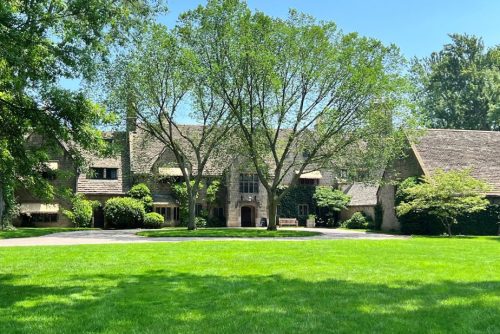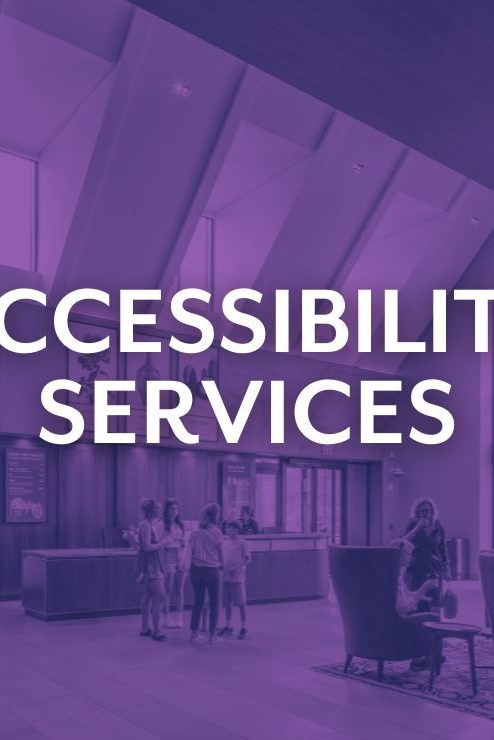Accessibility
Ford House has some paved walkways on the estate that are wheelchair accessible. Some of our garden pathways have uneven ground, pebble paths, and a few stairs.
The house itself has two floors available for self-guided tours. The second floor is accessed via the main stairwell, which offers a large, sturdy railing. While there is no elevator to the second floor, video tablets are available, providing a virtual visit for any guest who would like to use them.
If you have accessibility needs or concerns, our staff can work with you on accessible options. Please contact tickets@fordhouse.org to make the arrangements. Accessibility is important to us, and we want everyone to be able to share in the Ford House experience. If you have more questions, you can also call us at 313-884-4222.
General Tips
- The walk from the Visitor Center to the Main Residence is approximately 1/4 mile. Please note that some of our garden pathways have uneven ground, pebble paths, and a few stairs.
- Shuttle service with a lift is available (except on large-scale estate events like Little Goblins, Home for the Holidays at Ford House, etc.).
- Guests may board the shuttle at one of three locations:
- Visitor Center
- Main Residence
- Gate Lodge
- Guests may board the shuttle at one of three locations:
- Wheelchairs and umbrella strollers are available free of charge on a first-come, first-serve basis.
- Benches are located throughout the property should you need a rest.
- Family restrooms are available in the Visitor Center and Main Residence.
- The second floor, attic, and basement of the Main Residence are not accessible by wheelchair or stroller. However, we offer a mobile tour via tablet for visitors who cannot reach these floors.
Why Are Some Areas of the Estate Not Accessible For Individuals with Mobility Challenges?
Due to the estate’s historical nature, many of its buildings are not accessible to individuals with mobility challenges. Elevators are not available in these buildings, meaning that visitors must be able to climb stairs to view certain areas.
While Ford House has some paved walkways that are wheelchair accessible, many of our garden pathways have uneven ground, pebble paths, and a few stairs, making them challenging for some guests. Our historic buildings do not have automatic openers, which can challenge access in some spaces.
Wheelchairs, Walkers, Scooters, and Strollers
Wheelchairs, walkers, scooters, and strollers larger than 30 inches in width are not allowed in our historical buildings due to navigability and space limitations. No elevator is available to the second floor of the Main Residence, which will limit wheelchair, walker, scooter, and stroller access. Due to safety concerns, visitors cannot carry these items to the second floor of the Main Residence. Complimentary storage can be provided for these items while you are on a tour.
Are Guided Tours Accessible?
In general, guided tours of the estate are not accessible to individuals with mobility challenges because they include long periods of walking without rest, stairs, uneven ground, and pebble paths.
Mobility-friendly/Accessible tours for individuals can be arranged in advance by contacting info@fordhouse.org. Mobility-friendly/Accessible tours for groups can be arranged in advance by contacting Ford House’s Group Tours Coordinator at grouptours@fordhouse.org.
Does Ford House offer solutions for visitors on the autism spectrum or who have other sensory needs?
Absolutely! Guests with sensory needs are welcome to enjoy our tranquil Quiet Room on the second floor of the Visitor Center. You may ask any staff member for assistance.
We also have a social story available. A social story is a narrative used to help individuals with sensory needs, particularly those on the autism spectrum, understand and navigate social situations, routines, or expectations. These stories are designed to provide clear, concise, and visually-supported descriptions of what to expect and how to respond in specific scenarios, helping to reduce anxiety and improve social skills. Social stories can be tailored to address various sensory sensitivities, offering coping strategies and promoting a sense of security and predictability.
May I bring my service dog to the property?
Properly trained service animals, defined by the ADA (Americans with Disabilities Act) as dogs individually trained to do work or perform tasks for people with disabilities, are welcome on the property. Other pets and emotional support animals are not permitted on the property.
Learn more at the ADA website.
Enhance your experience!
Enhance your experience by becoming a Friend of Ford House where you'll enjoy exclusive perks like discounts on tickets, dining, and shopping, all while supporting this historic estate. Or reserve a table at The Continental for a perfect lunch or dinner before the event. And review Ford House rules and policies to make the most of your visit. Join us for a memorable evening and even more benefits with your Friends of Ford House Friendship.
Accessibility
At Ford House, we are committed to ensuring all guests can enjoy our events. If you have any questions or need additional information about accessibility before booking your tickets, please don’t hesitate to reach out to us. You can contact us at [insert contact info], and we’ll be happy to assist you.
For more details about our accessibility features, please visit our General Accessibility Information Page.
Thank you to Ford Philanthropy
Ford House is grateful for the generous support of Ford Philanthropy and helping us fulfill our educational mission and making Ford House more accessible to our community.
About Ford House
Ford House is a 501c3 nonprofit and National Historic Landmark. Experience the historic family home of Edsel Ford, the only son of Henry Ford, and his wife, Eleanor. Visitors from all over the world come to wander, wonder, and explore the beauty of this 1928 National Historic Landmark and uncover a unique piece of the American automotive story in metro Detroit. Learn more below.









